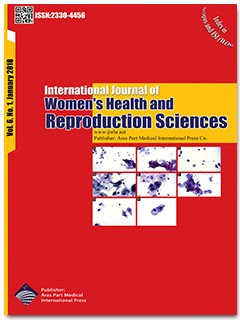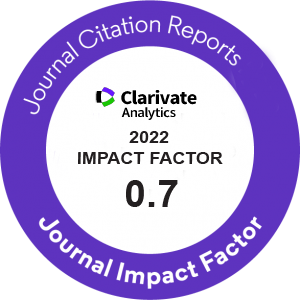| Original Article | |
| Comparison of the Effect of Melissa officinalis Capsule and Care Educational Programs on the Intensity of Physical, Mental and Social Symptoms of Premenstrual Syndrome in High School Female Students | |
| Marzieh Akbarzadeh1, Zinab Moshfeghy2, Mansureh Dehghani3, Masoumeh Emamghoreishi4, Pouran Tavakoli5, Najaf Zare6 | |
| 1Maternal?Fetal Medicine Research Center, Department of Midwifery, School of Nursing and Midwifery, Shiraz University of Medical Sciences, Shiraz, Iran 2Community Based Psychiatric Care Research Center, Department of Midwifery, School of Nursing and Midwifery, Shiraz University of Medical Sciences, Shiraz, Iran 3School of Nursing and Midwifery, Shiraz University of Medical Sciences, Shiraz, Iran 4Department of Pharmacology, School of Medicine, Shiraz University of Medical Sciences 5Department of Nursing, School of Nursing and Midwifery, Shiraz University of Medical Sciences, Shiraz, Iran 6Infertility Research Center, School of Medicine, Department of Biostatistics, Shiraz University of Medical Sciences, Shiraz, Iran |
|
|
IJWHR 2018; 6: 018-026 DOI: 10.15296/ijwhr.2018.05 Viewed : 3743 times Downloaded : 4051 times. Keywords : Premenstrual syndrome, Melissa officinalis, Physical, Mental, Education, Student |
|
| Full Text(PDF) | Related Articles | |
| Abstract | |
Objectives: Premenstrual syndrome (PMS) is one of the psychosomatic problems related to women?s reproductive function, which is associated with emotional and mood symptoms such as anger, anxiety and irritability. The current study aimed to compare the effect of Melissa officinalis capsule and care educational programs on the intensity of physical, mental and social aspects of PMS in high school girls. Materials and Methods: This study was a randomized, placebo-controlled trial which was conducted on 200 high school girls with PMS who were randomly allocated into 4 groups in Shiraz. The first group received 600 mg of M. officinalis essence daily from the first to the end day of their menstrual cycle for 3 consecutive cycles; the second and third groups received care educational program and placebo respectively, and the last one was the control group. The data were analyzed using paired t test and Repeated measures analysis of variance (ANOVA). Results: The results of repeated measures ANOVA test revealed a significant reduction in 3 determined times, pre-intervention, one and 2 consecutive months after the intervention (P < 0.001), in the intensity of physical, psychological and social aspects of PMS symptoms, and this varied in different groups (P < 0.001). The extent of changes varied over time and in different groups, so, the control and placebo groups had the least symptom changes over the time Conclusion: Melissa officinalis capsule and care educational programs were much more effective in reduction of the severity of physical, mental and social symptoms of PMS compared to the control and placebo groups. |
Cite By, Google Scholar
Google Scholar
PubMed
Online Submission System
 IJWHR ENDNOTE ® Style
IJWHR ENDNOTE ® Style
 Tutorials
Tutorials
 Publication Charge
Women's Reproductive Health Research Center
About Journal
Publication Charge
Women's Reproductive Health Research Center
About Journal
Aras Part Medical International Press Editor-in-Chief
Arash Khaki
Mertihan Kurdoglu Deputy Editor
Zafer Akan






















